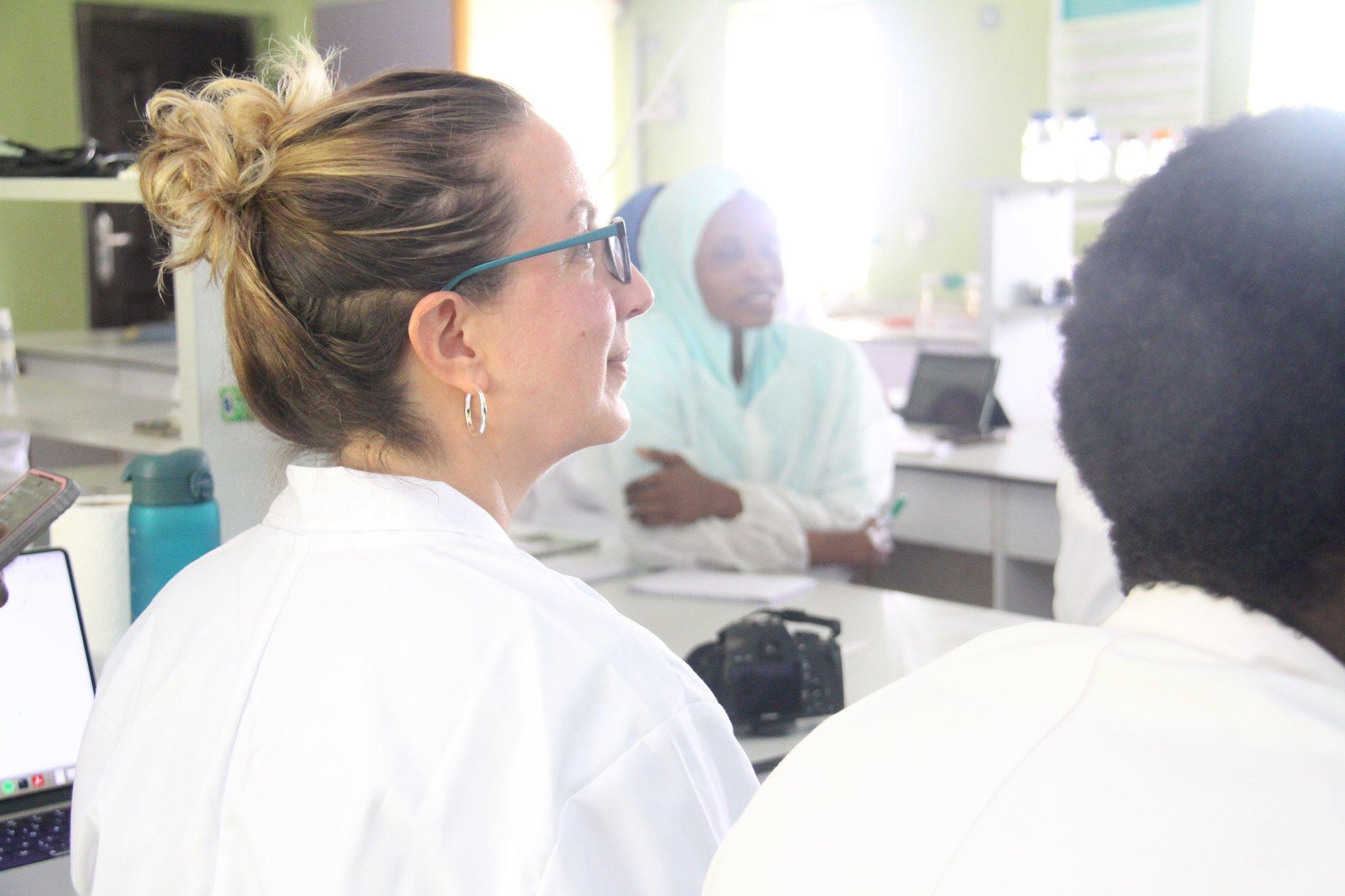
Submitted by D.P. Juan on Thu, 12/09/2024 - 15:55
From the 1st of September to the 15th of September, Dr Sara Pensa will be in Nigeria working to improve the early detection of cervical cancer in Nigera. This is the result of Dr Sara Pensa, together with Professor Nusrah Bolatito Afolabi-Balogun, securing the Cambridge-Africa Alborada Research Fund from the Cambridge-Africa Programme.
With the Alborada Fund, Dr Pensa and Professor Afolabi-Balogun aim to build on their existing collaboration, looking to establish a strong, cheap and reliable platform for the early diagnosis of CC in Nigeria. They aim to develop a diagnostic tool that can be initially implemented during outreach activities and then in health-
care settings throughout Nigeria.
While in Nigeria, with the help of Dr Francis Krampa from the University of Cambridge Department of Chem Engineering and Biotechnology, Dr Pensa worked towards strengthening research capacity in Prof Afolabi-Balogun’s Molecular Biology and Genetic Diversity lab at Fountain University. In particular, they worked on optimising, validating, and implementing the production of open-source, cost-effective enzymes used in diagnostics, including enzymes used for qPCR and loop-mediated isothermal amplification (LAMP)-based tests. They then optimized their use for detecting HPV in samples collected during the outreach activities organised over three days during the visit. During the outreach activities, women were offered free cervical screening and medical consultations, as well as education sessions to increase their awareness of papillomavirus as the causative agent of cervical cancer, cervical cancer symptoms, and the importance of early diagnosis using HPV testing.
In the second week of Dr Pensa's visit, they ran two workshops with members of Prof Afolabi-Balogun’s lab alongside researchers, students and health staff from other departments and institutes, selected from over 120 applicants. The first workshop aimed at teaching the theory and practice of the open-source diagnostic technologies optimised in the lab during the first week. The second workshop, facilitated by Mr Abdulrahman Alkhamis from BioRTC, Yobe State University, Damaturu, Nigeria, aimed at teaching the theory and practice of Confocal microscopy and Immunofluorescence techniques for diagnostic and research applications. This was possible thanks to the donation of a confocal microscope to the Molecular Biology and Genetic Diversity lab, which was possible due to an equipment donation program run by TReND in Africa. Both were co-supervised by Dr Pensa and Prof Afolabi-Balogun.
To follow their progress, their social media handles are:
Dr Sara Pensa: @Dr_Sara Pensa
Prof Afolabi-Balogun: @BalogunMajeedah
Fountain University: @fuoweb
Cambridge-Africa: @CambridgeAfrica
TReND in Africa: @TReNDinAfrica
Dr Francis Krampa: @FKrampa1
Mr Abdulrahman Alkhamis: @alkhamis3322
